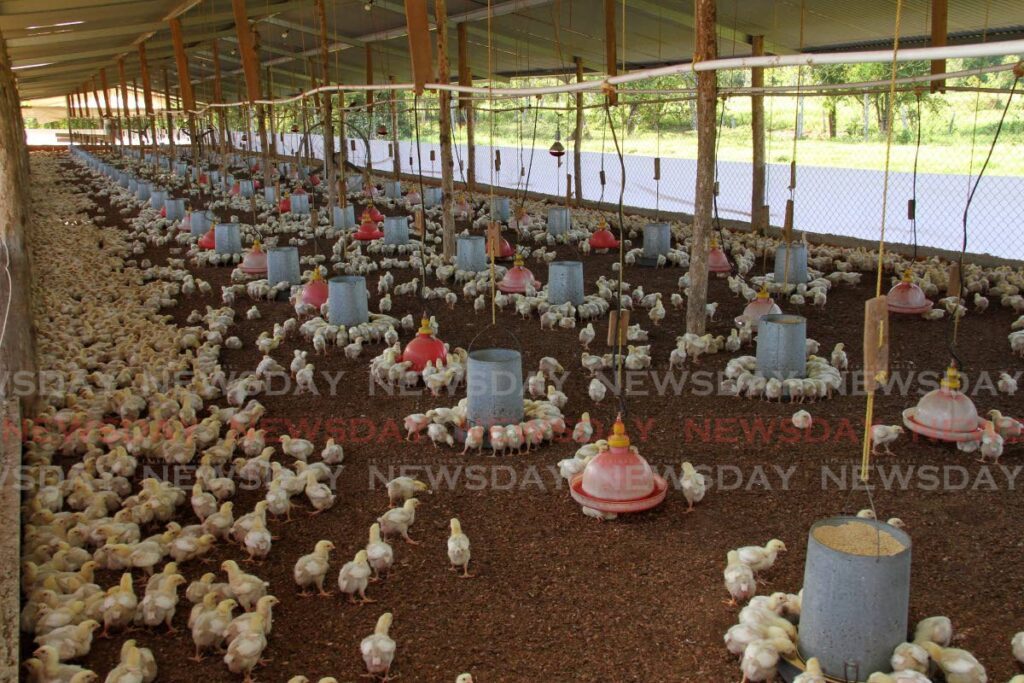Hosein: Chickens in Trinidad and Tobago get ' VIP treatment'

AT the opening ceremony of the Caribbean Poultry Association's seventh international technical symposium and exhibition on May 14, Minister of Agriculture, Land and Fisheries Kazim Hosein called for the population to support local poultry industries.
Hosein, in his address at the Hyatt Regency, Port of Spain, said citizens need to prioritise Trinidad and Tobago's poultry sector over imported alternatives, citing both taste preference and economic significance.
"Biting into local chicken tastes so much better and is so much different than biting into a piece of foreign chicken," Hosein said.
Hosein said locally-produced poultry products differ greatly from their foreign counterparts, as local chickens are not treated with hormones and are well taken care of.
"When I visit the farms, I can see how well-loved the chickens are. They get the VIP treatment."
He urged stakeholders to “encourage innovation” as they work toward the broader goal of reducing carbon footprints while ensuring food security.
This call was supported by president of the Caribbean Poultry Association Hemant Mahabir, who highlighted the need for sustainability in the regional context in his opening remarks.
"Sustainability isn’t a buzzword. In an era characterised by volatility, we need to be resilient,” Mahabir said.
The three-day symposium served as a platform for key stakeholders to address critical issues facing the Caribbean poultry sector.
Joseph Cox, assistant secretary general of the Caricom Secretariat, said the region urgently needs to strengthen sustainable agriculture in the region to meet Caricom’s 25x25 goals.
Caricom's heads of government have pledged to cut the region's high food import bill by 25 per cent by 2025. The Caricom agri-food systems strategy being implemented in member states is anticipated to assist in reaching this goal.
It focuses on priority crops and products like chicken, corn, soy, meat (goat, sheep and beef), rice and specialty vegetables, all of which are heavily imported goods in the area.
CEO and technical director of the Caribbean Private Sector Organization Dr Patrick Antoine echoed these sentiments, advocating for intra-regional trade in poultry products to promote regional self-sufficiency.
Antoine proposed three policy initiatives to address disparities and enhance regional trade, including the implementation of a tariff-rate quota regime and a community trade defence mechanism.
The tariff quota regime is used to safeguard homegrown products. In that system, the intended level of protection is achieved by combining the quota component with a predetermined tariff level.
Antoine proposed the removal of tariffs on locally produced poultry products and instead advocated for higher tariffs on foreign poultry products.

Comments
"Hosein: Chickens in Trinidad and Tobago get ‘ VIP treatment’"